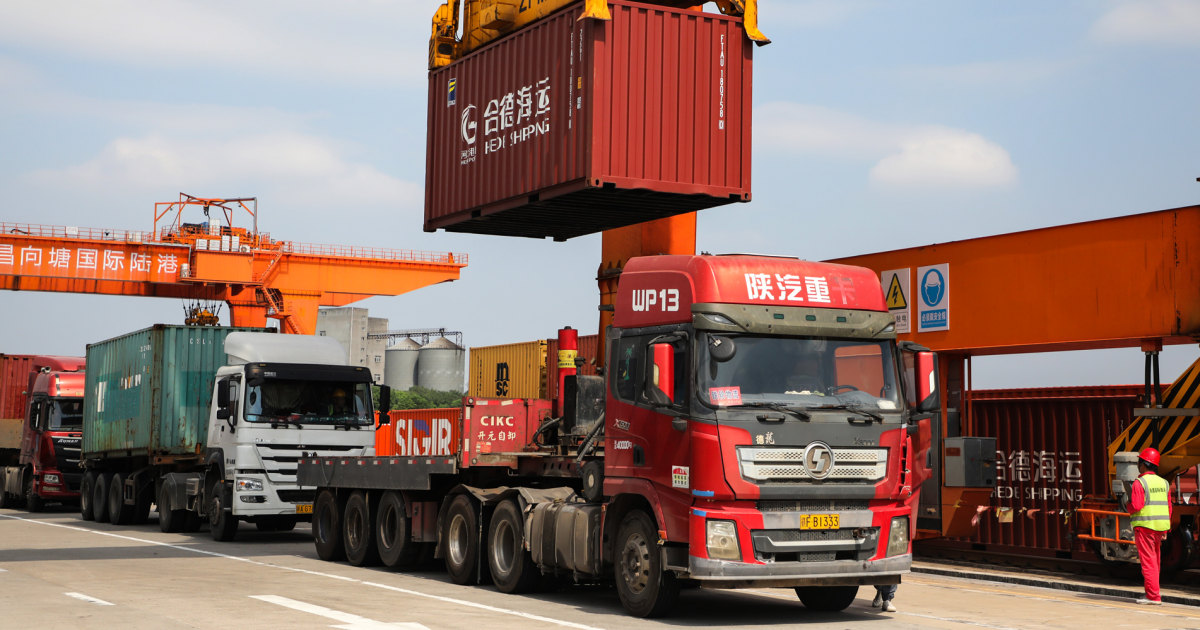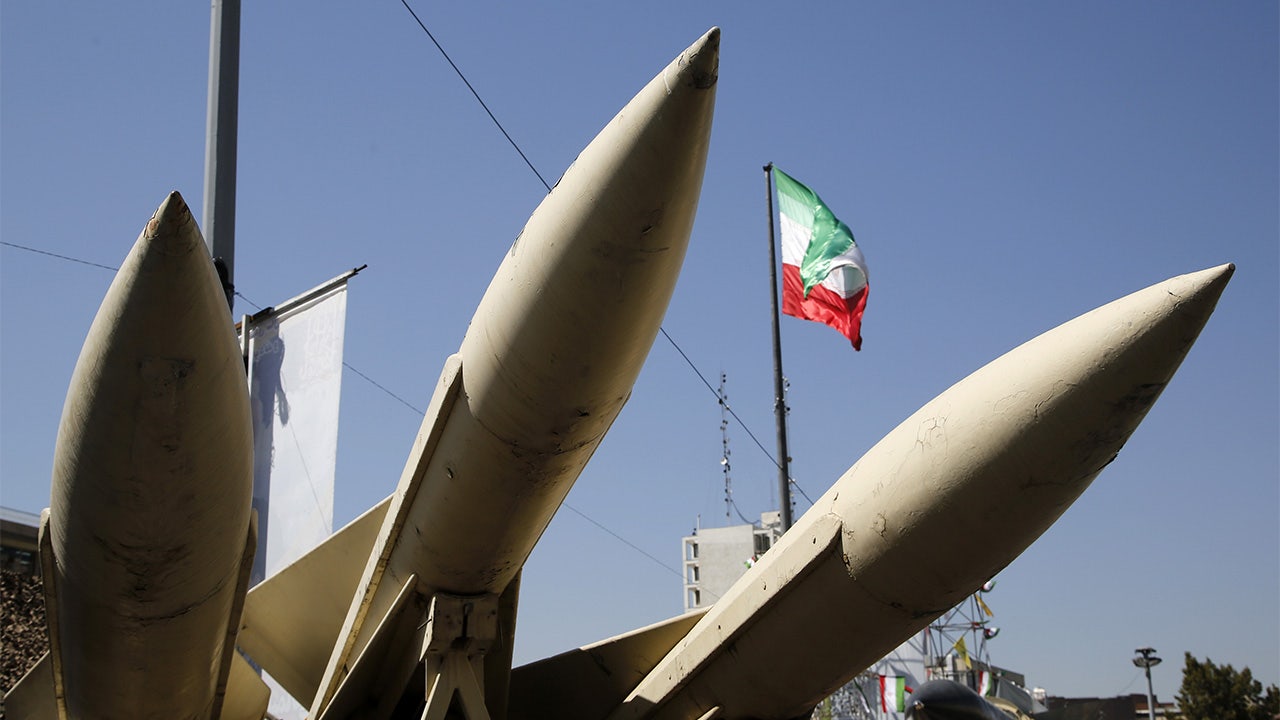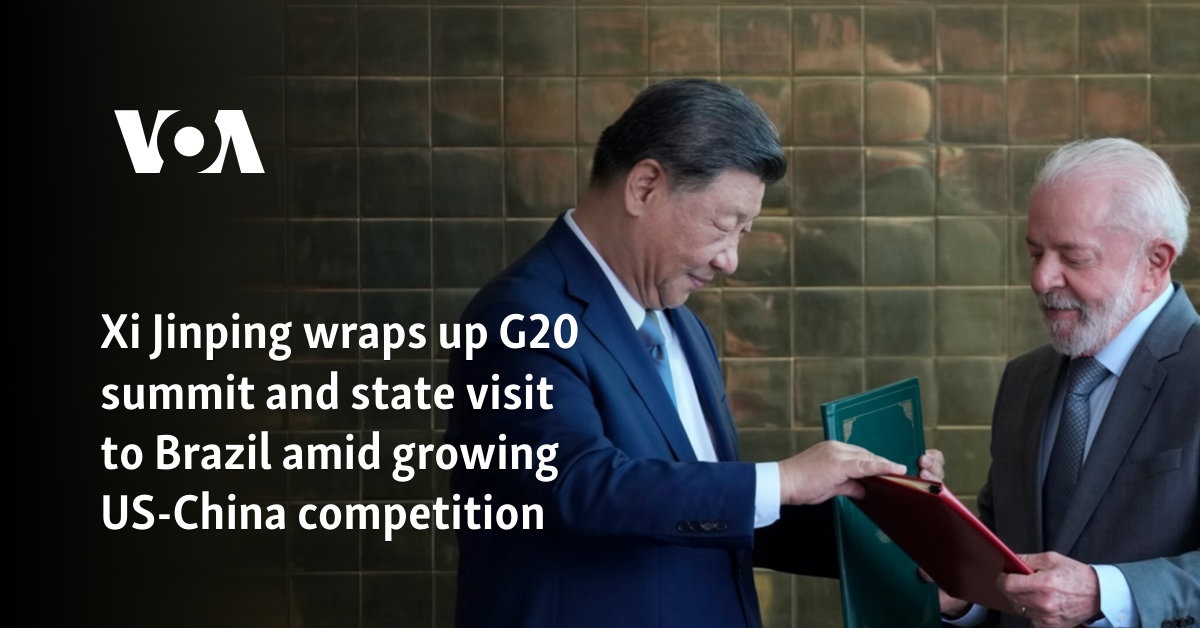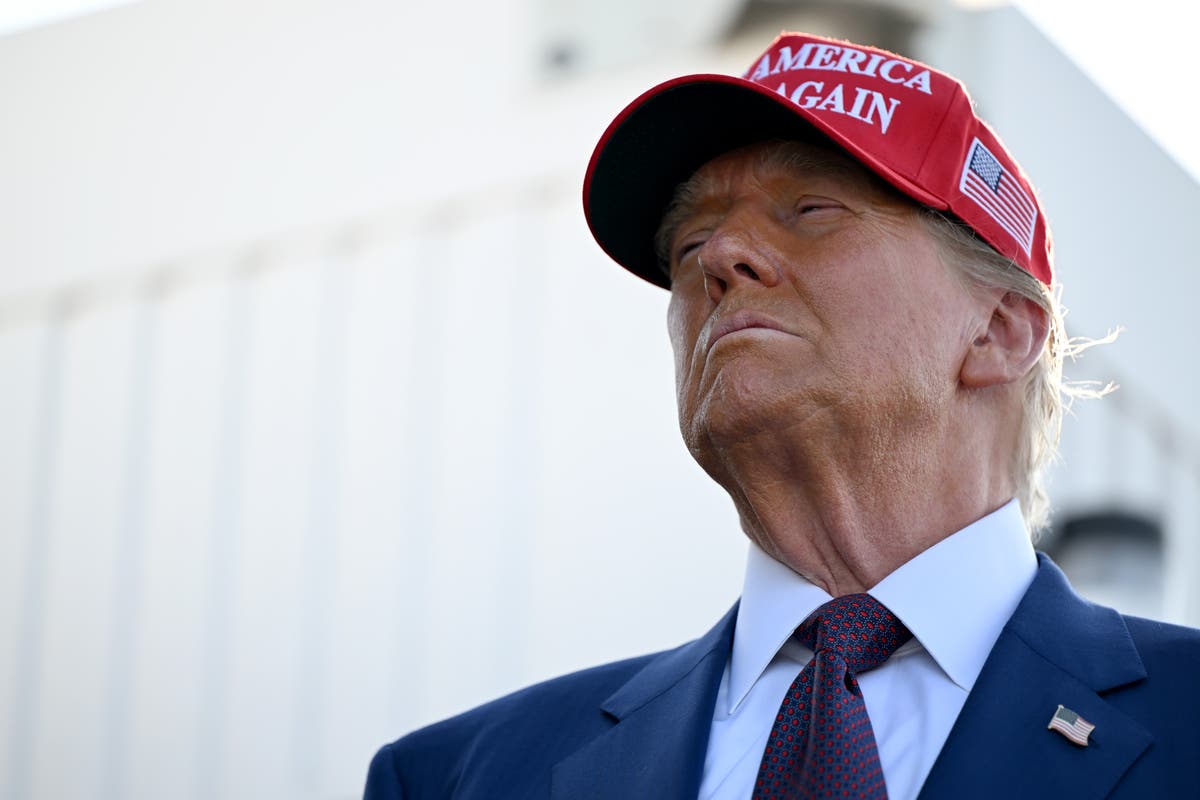World
Biden’s new tariffs on Chinese goods are mostly symbolic. Here’s why.

New U.S. tariffs on $18 billion in Chinese goods take effect Friday as trade tensions intensify between the world’s two largest economies.
The tariffs affect 14 categories of Chinese goods including green technology such as electric vehicles, solar panels and EV batteries — sectors that Beijing has prioritized as it tries to dig out from an economic slowdown. But experts say they are mostly symbolic since the U.S. imports relatively few of the affected products directly from China.
For example, the U.S. imports almost no Chinese EVs, largely because of an existing 27.5% tariff that is now increasing to 100%. Similarly, the U.S. imports less than 1% of its steel from China and just over 5% of its aluminum.
Lithium-ion batteries, however, are a different story, accounting for about $13 billion of the $18 billion in affected Chinese goods. The proportion of U.S. lithium-ion EV battery imports coming from China has surged in recent years, reaching 70.5% in 2023 as China continues to dominate the supply chain for a fundamental component of electric vehicles.
Similarly, the U.S. has been increasing its Chinese imports of natural graphite, another crucial component of EVs. A 25% tariff on natural graphite from China, the world’s largest producer, has been delayed until 2026, allowing more time to find alternative sources.
The U.S. trade deficit with China is at its lowest since 2010 as the U.S. imports fewer goods from China — $427.2 billion worth in 2023, down 20 percent from the year before. Experts say the decline has been driven largely by tariffs that former President Donald Trump imposed in office and that President Joe Biden has mostly maintained and in some cases expanded.
The latest U.S. tariffs are more targeted compared with the Trump tariffs, which affected about $300 billion in Chinese goods, said Chim Lee, a senior analyst on China and Asia at the Economist Intelligence Unit.
Biden administration officials have accused China of having industrial “overcapacity” in areas such as EVs, solar panels and lithium-ion batteries, which they worry could lead Chinese manufacturers to flood overseas markets with low-priced products that undercut domestic competitors.
China denies that it has an overcapacity problem, saying the U.S. tariffs are protectionist in nature and designed to block the development of the Chinese economy. Beijing also argues that by blocking consumer access to affordable, quality Chinese green technology, the U.S. restrictions will hurt global efforts to fight climate change.
“Both sides are correct,” Lee said. “Cheaper Chinese solars and cheaper Chinese EVs can actually take jobs away from a lot of manufacturers in, say, the West. But at the same time, the whole world is also interested in transitioning to a greener world.”
In addition to promoting the development of U.S. EVs and other domestic industries, he said, the idea is to encourage U.S. allies to announce their own tariffs on Chinese goods — as the European Commission did for Chinese EVs in June.
The tariffs may push Chinese automakers, solar panel manufacturers and others to further shift production to places that are not subject to them, such as Southeast Asia and Mexico, which last year surpassed China as the top source of U.S. imports. They could also create new opportunities for low-cost suppliers from other countries such as Malaysia, home to the world’s largest maker of medical gloves.
That’s not necessarily a bad thing, said Charles Benoit, trade counsel for the Coalition for a Prosperous America.
When a company moves production from China to another country, he said, “that’s also promoting resilient supply chains, which is also one of our policy goals. So I think that the tariffs will have an overwhelmingly positive impact.”
While some of the tariffs serve mainly to generate U.S. government revenue without cutting off imports of needed products, the higher ones are designed more explicitly to shut out some products entirely.
Benoit said the tariffs would significantly slow down the expansion of Chinese EVs in the U.S. while keeping American carmakers competitive and focused on innovation, particularly when it comes to lithium-ion batteries.
“Absent the tariffs, it’s very hard to justify an investment in making those batteries here,” he said.
The Biden tariffs have been criticized by the International Monetary Fund, which said such trade restrictions can distort trade and investment, fragment supply chains and provoke retaliatory measures.
“Fragmentation of this type can be very costly for the global economy,” spokesperson Julie Kozack said in May after the tariffs were announced.
In terms of retaliation, Lee said, Beijing has been “quite reserved” in its response to the tariffs as it tries to improve relations with the U.S. and other countries.
“China today is not the same as China in 2018 and 2019, when there was a very clear tit-for-tat approach,” he said.
Lee said that while there are signs of overcapacity in some Chinese industries, it is not equal across sectors and in some cases the worst of it has already passed.
“Things are starting to stabilize, and it’s gradually going to improve,” he said.









